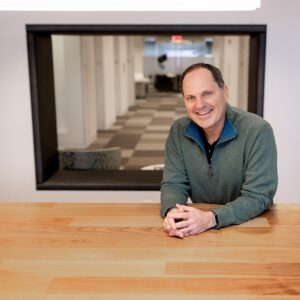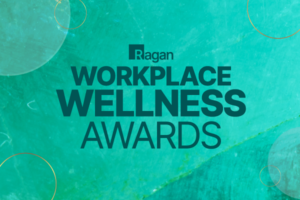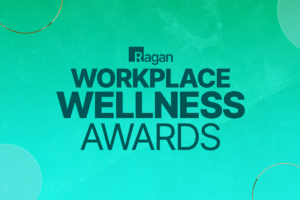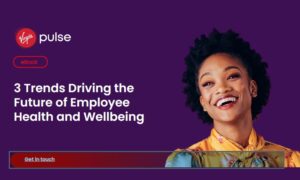How Zebra Technologies commits to employee well-being and ’doing well by doing good’
Ragan’s Workplace Wellness caught up with Jeff Schmitz of Zebra Technologies.

Ask Jeff Schmitz of Zebra Technologies about the wealth of well-being programs at the company, and he’s quick to mention flexible work. “Flexibility is paramount to today’s workforce,” he says. “At Zebra, we are highlighting not just hybrid work, but flexibility in hours.”
 But that’s not all, as Zebra’s well-being programs also focus on mental, physical and financial health through community involvement. The company aims to create more “doing well by doing good” programs that can also promote personal well-being for its over 8,500 employees across the globe.
But that’s not all, as Zebra’s well-being programs also focus on mental, physical and financial health through community involvement. The company aims to create more “doing well by doing good” programs that can also promote personal well-being for its over 8,500 employees across the globe.
As chief human resources and marketing officer, Schmitz is in a unique position at the company with both an upfront view of the benefits and the ability to market those benefits to Zebra’s employees. Schmitz will be detailing such at Ragan’s Workplace Wellness Conference, Aug. 17, in his session, “Empowering Your Employees to Engage in Wellness Initiatives.”
In advance of the conference, we asked Schmitz to share some of the company’s well-being initiatives and goals. This conversation has been edited for length and clarity.
Ragan Wellness: Tell us a bit about the range of wellbeing programs at your company.
Jeff Schmitz: We are fortunate to have a wide range of wellbeing programs at Zebra. Zebra is committed to one zDay annually — a collective, paid, company-wide day off annually in addition to current paid time off and holiday observances, for those eligible to participate. This enables employees to take a break and focus on well-being without falling behind on email or meetings.
During the summer season in North America, Flex Fridays allow our employees across the globe to put their time in during the week and log off at noon on Fridays when able. During the rest of the year, we implement Focus Fridays, which discourages scheduling meetings after noon on Fridays to create “white space” on calendars so employees can focus on completing tasks for the week, instead of being tied up in meetings or being assigned new projects.
Last year, Zebra won a Ragan award for our physical health opportunities, including zClub fitness centers and the annual Great Cycle Challenge. Our Well Track well-being program is designed to help employees take control of their health in a fun and competitive way through steps challenges and more.
We have a full slate of financial services, including two vendor partners who offer a free session to assist with financial health topics like debt reduction and creating a budget. After the session, they will follow up with the employee to check on their progress.
We also offer a robust, confidential Employer Assistance Program (EAP) meant to assist employees through a variety of problems and challenges, including both personal and work-related issues. Our program is broader than a typical “break glass in case of emergency” EAP, and offers programs for strengthening relationships, working toward life goals, and finding solutions to increase job performance.
RW: What are some of the best practices you would recommend to fellow communicators and HR as they are rolling out new wellbeing initiatives or just getting started?
Schmitz: Many organizations have great programs that are not well understood or used. Zebra has found success by routinely marketing the benefits of the program through Town Halls, live events and activities on-site in our facilities, via the intranet and email.
RW: How are you measuring success with some of your programs?
Schmitz: We are monitoring utilization and attrition regularly within our wellness programs, and we regularly conduct robust employee engagement surveys along with pulse check-ins.
RW: What challenges do you believe still need to be overcome in the well-being space?
Schmitz: Unfortunately, EAPs are underutilized since they have traditionally been perceived as a crisis hotline. We need to overcommunicate about these opportunities and build on-ramps such as Town Hall meetings and guest speaking engagements to remind our employees to continue to focus on their personal well-being, and the well-being of those around them.
RW: What opportunities for wellbeing do you see for your company on the horizon?
Schmitz: Across the globe, Zebra participates in community service activities, organized by location. Employees also have the opportunity to individually use work hours to give back for certain approved charitable causes. We believe that well-being is improved when we give back to the community. One of our goals is “Doing well by doing good.” This is an underappreciated part of well-being. Giving back is a big part of building company culture and a sense of belonging, and research shows that volunteer work can have great mental and physical health benefits. Zebra is continuing to focus on growing opportunities for our employees in this area.






